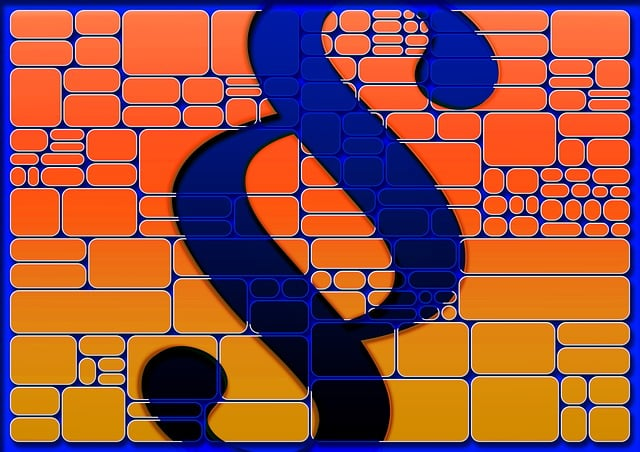C-Level investigations in healthcare scrutinize high-ranking executive misconduct, with a primary focus on navigating Legal Challenges in Healthcare Regulations. These complex legal issues involve federal and state laws, guidelines, and standards across diverse stakeholders. Non-compliance can lead to significant fines and reputational damage, while fraudulent activities trigger investigations. Proactive risk mitigation through specialized legal expertise and ethical staff education is crucial to avoid indictment and foster a culture of compliance. Case studies highlight successful strategies, showcasing the importance of meticulousness and strategic depth in upholding accountability and ethical conduct within healthcare sectors.
In the intricate world of healthcare, C-Level Investigations are crucial tools for uncovering ethical practices and ensuring compliance. This article delves into the scope and impact of these inquiries, navigating the complex legal landscape of healthcare regulations. We explore common triggers, from financial missteps to potential misconduct, highlighting strategies to tackle Legal Challenges in Healthcare Regulations. Through real-world case studies, we demonstrate successful navigation of these intricate investigations, offering insights for organizations facing similar scenarios.
- Understanding C-Level Investigations: Uncovering the Scope and Impact
- Legal Landscape of Healthcare Regulations: A Complex Web
- Common Triggers for C-Level Investigations in Healthcare
- Navigating Legal Challenges: Strategies for Compliance and Defense
- Case Studies: Real-World Examples of Successful C-Level Investigations
Understanding C-Level Investigations: Uncovering the Scope and Impact
C-Level Investigations refer to inquiries and legal proceedings aimed at high-ranking executives within organizations, particularly in the healthcare industry where navigating complex regulations is paramount. These investigations delve into allegations of misconduct, focusing on issues related to Legal Challenges in Healthcare Regulations. The scope encompasses a wide range of activities, from financial mismanagement to ethical breaches, with potential implications for both individuals and institutions.
Understanding the process involves recognizing that these investigations proceed through various stages, from initial assessments to fact-finding missions and, ultimately, resolutions. A key aspect is the balance between holding individuals accountable and ensuring a fair process, especially in cases involving white collar defense. The outcome can range from a complete dismissal of all charges to substantial penalties and reputational damage, underscoring the significance of proactive measures to mitigate risks at the C-suite level.
Legal Landscape of Healthcare Regulations: A Complex Web
The legal landscape of healthcare regulations is a complex web, intricate with a myriad of federal and state laws, guidelines, and standards. This maze is constantly evolving, presenting significant legal challenges in healthcare that require meticulous navigation. Organizations must not only ensure compliance but also anticipate potential pitfalls to avoid costly investigations and lawsuits. The complexity arises from the diverse nature of healthcare providers, ranging from hospitals and clinics to pharmaceuticals and insurance companies, each facing distinct regulatory demands.
Moreover, the intricate web of regulations involves various stakeholders, including government agencies, professional associations, and patient advocacy groups, all wielding influence over policy decisions. This dynamic environment poses unique legal challenges in healthcare, testing the mettle of even the most seasoned white collar defense attorneys. However, their expertise in navigating these complexities is crucial for securing winning challenging defense verdicts for corporate and individual clients alike, ensuring they remain compliant while safeguarding their interests.
Common Triggers for C-Level Investigations in Healthcare
C-level investigations in healthcare often arise from a variety of triggers, many of which are related to legal challenges and regulatory compliance issues. One common trigger is non-compliance with Legal Challenges in Healthcare Regulations, such as those pertaining to patient data privacy, medication distribution, or billing practices. When organizations fail to adhere to these stringent regulations, they risk not only financial penalties but also public scrutiny and damage to their reputation.
Another significant trigger is the suspicion of fraudulent activities, including but not limited to insurance fraud, kickbacks, or false claims. These investigations are typically launched by regulatory bodies or law enforcement agencies, aiming to protect patients and ensure fairness within the healthcare system. For his clients, avoiding indictment and jury trials becomes paramount, as these outcomes can have severe consequences for individuals and institutions alike.
Navigating Legal Challenges: Strategies for Compliance and Defense
Navigating complex legal challenges is a critical aspect of managing healthcare regulations. As the industry faces stringent compliance standards, organizations must be prepared to defend against potential violations and investigations. A robust strategy involves staying ahead of evolving regulations and proactively educating staff on ethical practices. By fostering a culture of compliance, entities can minimize the risk of costly mistakes and white-collar defense actions.
For his clients, winning challenging defense verdicts requires a meticulous approach. Legal experts specializing in healthcare regulations play a pivotal role in guiding organizations through labyrinthine laws and policies. These professionals ensure that every step taken during investigations is well-documented and aligned with the law, ultimately strengthening defenses and safeguarding interests.
Case Studies: Real-World Examples of Successful C-Level Investigations
In the realm of C-Level investigations, case studies serve as a vibrant tapestry of real-world examples illustrating successful navigations through complex legal challenges in healthcare regulations. These intricate inquiries often involve corporate and individual clients, demanding an unprecedented track record of meticulousness and strategic depth. By examining these cases, we uncover valuable insights into all stages of the investigative and enforcement process.
Each successful investigation stands as a testament to the integration of robust legal expertise with innovative problem-solving. From initial suspicion to definitive resolution, these case studies demonstrate how specialized teams can unravel intricate schemes, ensuring accountability while upholding justice. The outcomes speak for themselves: a robust system that deters future misconduct and promotes ethical conduct within healthcare sectors.
C-Level investigations are a vital tool in navigating the complex legal landscape of healthcare regulations. By understanding the scope and impact, recognizing common triggers, and adopting strategic compliance and defense mechanisms, organizations can effectively manage these probes. The case studies presented highlight successful outcomes, underscoring the importance of proactive measures to address Legal Challenges in healthcare. Embracing these insights empowers stakeholders to foster a culture of accountability and transparency, ultimately enhancing organizational resilience.






